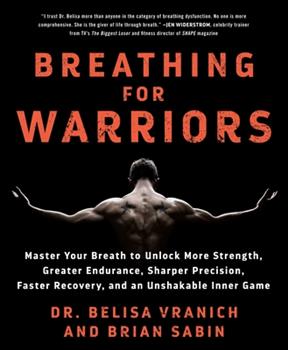
Breathwork coach and author Dr. Belisa Vranich’s 2020 book Breathing For Warriors is an under-appreciated gem, chock full of practical “hands on” insights about how Team Human’s super power – breathing – can be deployed to optimize human potential, especially in the realm of sport and fitness. Vranich bases her protocols on seven breathwork principles championed by Russian Special Operations Chief Instructor Vladimir Vasilev, protocols captured in his book Let Every Breath…Secrets of the Russian Breath Masters, and Vranich argues that all seven should apply to “every waking moment” of our lives.
Here are fourteen areas of focus, which our Peak Flow team is incorporating into our emerging Level 2 Practitioner’s Academy curriculum, to be launched later this year.
The Principle of Anatomical Congruence
Optimize the biomechanics of breathing by focusing on both the Location of Movement (LOM) and Range of Motion (ROM). Powerful overlap here with Peak Flow’s focus on Light (breathing biochemistry), Slow (breathing cadence) and Deep and Diaphragmatic (breathing biomechanics) breathwork – what we call LSD breathing. More below.
The Principle of Breathing IQ
Focus on optimizing one’s B-IQ via primary breathing muscles: the diaphragm, intercostals, and abs/obliques.
The Principle of Movement Integrity
Consider breathing as the most elemental and primary human movement we make, and the impact of breathwork on “movement integrity” throughout the body immediately becomes obvious.
The Principle of Psychology and Breathing
Breathing is psychologically bidirectional – our mood affects our breathing, and our breathing affects our mood. Consider four factors here: 1) our body’s ongoing translation of our environment, including stress, technology and our sedentary lifestyles; 2) negative feelings about one’s body; 3) myths and misunderstandings re: our respiratory system; and 4) Sympathetic Nervous System shocks – fight, flight and fright/freeze – that we internalize, impacting our breathing.
The Principle of an Amnestic Diaphragm
Our lifestyles “lock up” and inhibit our diaphragms from doing what they are evolutionarily designed to do – via bracing, guarding, “sucking in” our abs, shallow mouth/chest breathing etc – leading to vertical rather than horizontal breathing.
The Principle of Perfect Trifecta
Strengthening our neuro-anatomical power trio – our pelvic floor, our thoracic diaphragm, and our psoas muscles (the ones behind our abs) – creates more breathing support for our lungs and heart from below, and our lower back, digestive organs, and pelvic floor from above.
The Principle of Detoxification
Believe it or not, our diaphragm is our body’s major detoxifying muscle. Let’s use proper breathwork to optimize our diaphragms.
The Popeye Principle
Counteract Popeye’s barrel chest, which dysfunctionally creates more residual air and air hunger, work on maintaining the efficiency and strength of our exhales.
Th Principle of Pedagogical Breath Retraining
Rather than mistakenly “take a deep breath,” optimize “nasal diaphragmatic” breathing by retraining the respiratory system via LSD and hormetic breathwork protocols.
The Principle of Efficiency
Optimizing nose-to-belly- breathing increases the efficiency of every breath, 20,000 to 25,000 times daily.
The Principle of Ten Pounds
Collectively, our correct breathing muscles weigh ten pounds – and retraining our respiratory systems to optimize them extends our endurance, reduces fatigue and “naturalizes” the balance of our breathing.
The Principle of Active Recovery
Recovery is vital! LSD breathing and meditation both support active recovery as part of building strength and endurance.
The Principle of Arousal Control
Our breathing is key to controlling stress, anxiety and our autonomic nervous system.
The Principle of “The Machine”
“Take care of your Body (“The Machine”), and your Body will take care of you.”
In sum, breathwork is Team Human’s superpower, and optimizing our breathing will directly catalyze the optimization of Human potential, Mind, Body and Spirit.





